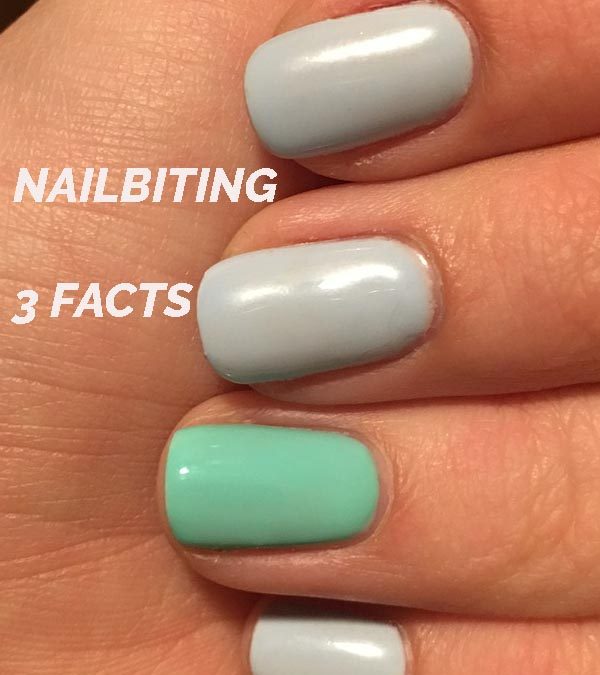3 Facts about Nail biting
(Onychophagia)
Fact One – there aren’t many facts
A search of a scientific literature reveals only a handful of studies on nail-biting and as a result we still don’t really understand it. From the small-scale studies that have been conducted we can vaguely agree that ‘about’ 20% of adults bite regularly and ‘up to’ 45% of teens. A psychologist named Fred Penzel stated that “Everybody picks and bites to a degree, when it gets to the point that people are doing damage to themselves, that’s when we treat it as something other than an everyday behaviour.” The really nasty nail-biting that cause pain, bleeding and nail bed damage applies to a much smaller number of people but, says Penzel, it is surprisingly common problem and one fairly regularly at Old Town Hypnotherapy.
Fact Two – there are many theories
Without evidence we are left with theories, here are a few:
- Sigmund Freud believed that excessive nursing during infancy could lead to what he described as an ‘oral receptive personality’ and a tendency to chew on nails and other objects. He had no evidence to back up this theory.
- Nail-biting is a mild form of self-harm. The nailbiter is intentional injuring themselves as a sign of hostility towards themselves.
- Controversially, the Diagnostic and Statistical Manual of Mental Disorders puts nail biting in a broader category with OCD (Obsessive Comulsive Disorder) but many Psychologists disagree, arguing that doing something repetitively is not necessary doing it compulsively. A Compulsion is usually associated with extreme levels of anxiety and nail biting isn’t always.
- Perhaps it goes deeper, perhaps the uncontrollable urge to groom excessively has an evolutionary rationale. Dogs and Cats can overgroom themselves, resulting in hair loss and skin irritation. They groom beyond what is useful suggesting they get psychological reward for doing so and certainly the Vet will say they are likely to be stressed and find comfort in the behaviour.
- Maybe we just bite our nails because they’re there, constantly growing back. Psychologists believe that you can get psychologically addicted to all sorts of strange things (eating loo roll, drinking nail varnish, avoid both). Any activity that provides a reward can reinforce itself over time and for lots of biters a feeling of satisfaction is present when they remove that untidy bit of nail.
- The leading current hypothesis is the idea that nail biting helps regulate our emotions. When we are bored, it keeps us occupied, when we are stressed, it offers a temporary escape or a little bit of pleasure.
Fact Three – stopping is possible
Nail biting might seem trivial, but many people experience shame and embarrassment from their biting, and as a result, may opt out of certain social situations or activities. This can lead to isolation, loneliness and emotional distress, resulting in a higher risk for a co-occurring psychiatric disorder, such as a low mood or anxiety disorder. It may also cause significant physical damage to the cuticles and nails, risks bacterial and viral infections, cellulitis, abscess, and permeant disfigurement.
Stopping biting your nails is a bit like stopping smoking, there are lots of props on the market that claim to make it easier, like the disgusting tasting nail varnish and nail biter gloves. Ultimately, it is a bad habit that you want to stop.
At OLd Town Hypnotherapy we work in a solution focused way, so we would ask the client these kind of questions:
When don’t you bite your nails?
When you notice yourself biting, what would you prefer to be doing instead?
What already works?
We help the client build up a detailed picture of themselves as a non-biter and during hypnosis we use these images to remind the Primitive Mind that nail biting is just a habit, nothing more and there are other ways to cope with life that we would prefer.
To stop motivation has to be there, if your nail biting isn’t a big issue for you then stopping it becomes a challenge. A problem is only a problem if it is a problem. You must want to stop. Ambivalence is the enemy of change.
If you need help, get in contact with Old Town Hypnotherapy. We offer free initial consultations to explain further how we help and offer online and in person appointments.

